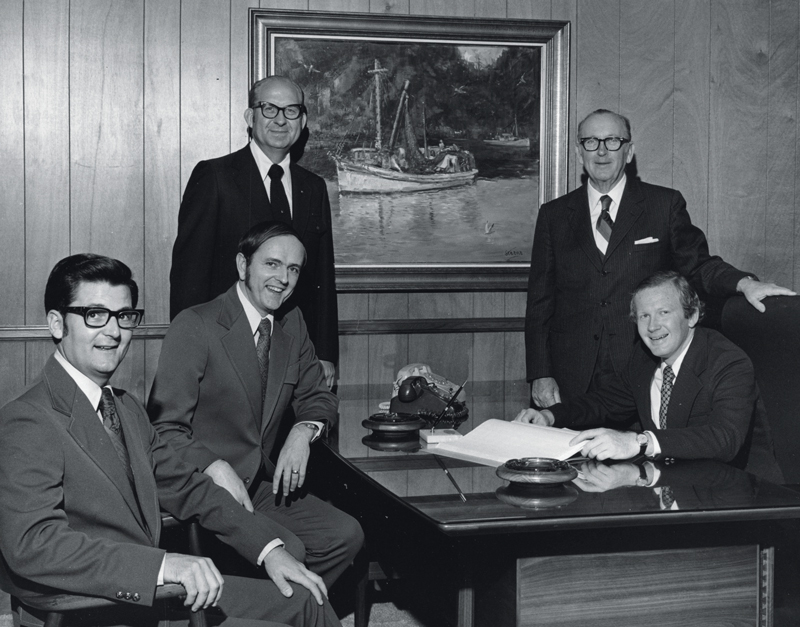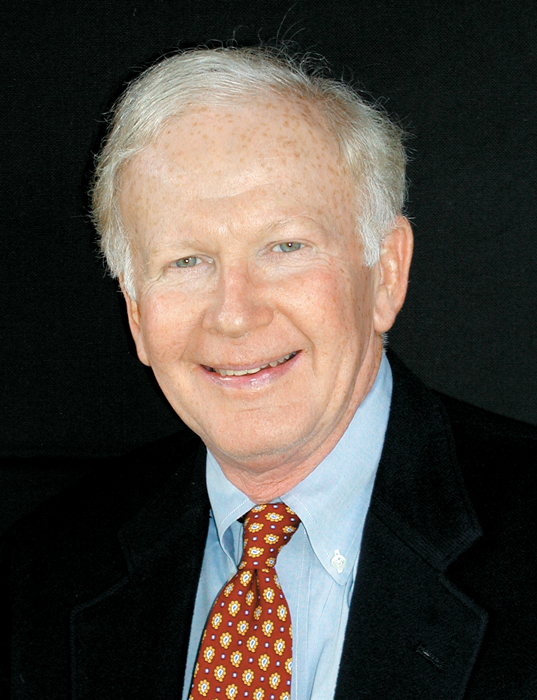Blossman cited safety as an extension of his concerns for others
Nine men whose dedicated work made them pioneering leaders within the propane industry will be honored as the inaugural class of the Propane Hall of Fame at a black-tie recognition dinner and awards ceremony on April 13 at The Ritz-Carlton in Atlanta, preceding the 2012 NPGA Southeastern Convention & International Propane Expo. The Hall of Fame is being launched by the staff at LP Gas magazine in conjunction with the year-long celebration of the propane industry’s 100th anniversary. The magazine intends to make the event a yearly tradition that recognizes the pioneers, icons and leaders – past and present – and creates a permanent legacy for their contributions to the industry. To order tickets, visit lpgashalloffame.com.
In an industry known in pre-corporate days for being a little down and dirty, John Blossman stood apart.
Ivy League-educated with a divinity degree and later a Vanderbilt law degree he never used, Blossman was a well-read, soft-spoken Southern gentleman who abhorred conflict but stood firm on principles that protected his employees, customers and industry.
As president and later chairman of Ocean Springs, Miss.,-based Blossman Gas, he viewed his company as a vehicle to provide for others, whether it was a decent living for his employees and their families or safe and reliable energy for his customers. He dedicated his efforts to bettering the industry as president of the National Propane Gas Association in 1994 and, before that, chairman of its Education and Government Affairs committees.
Blossman, who died in 2009, was adamant about the need for safety standards and protocols. He pressed hard to ensure that the Gas Appliance System (GAS) program, launched by NPGA in 1985 and later sold and revised by the Propane Education & Research Council, gained acceptance within his company and the industry.
“John had a very quiet and calm personality, but I think he was often underestimated,” says Stuart Weidie, his stepson and successor as Blossman’s president.
“He had a strong belief that our industry and Blossman Gas needed to be safer so we could keep employees and customers out of harm’s way. I think that’s why he was so passionate about NPGA’s work with GAS Check.”
Opponents balked at the rollout of the program, fearing it would expose installers to liability in the event of an accident. They also worried the additional training would cost too much. Blossman had to fight those battles within his own company, Weidie recalls, and managers were gearing up against the program at one meeting in Georgia.

John Blossman, seated at right, believed that everyone in the company was special in fulfilling their own, different roles.
“Very uncharacteristically, John started the meeting and said something that shocked everyone in the room: ‘We’re going to do this at Blossman Gas, and if you’re going to work here, you’re going to do it as well,’” Weidie remembers. “Everyone’s mouths dropped, because John didn’t speak like that, but that’s how firmly he believed it was good for the company and the industry.”
It was a rare moment of intransigence for a man who typically weighed others’ viewpoints and forged compromise. But he understood that the industry needed safety standards to protect its people and prevent cumbersome government mandates.
“It’s been one of the most important initiatives in our industry in 50 years, because it has greatly enhanced our safety in terms of our operational practices in the field,” Weidie explains. “It has a positive impact on our customers and the employees who work in our industry.”
Robert C. Mayer, who was treasurer of Blossman Gas before Blossman joined his father’s company in 1969, says safety was always a key issue.
“He always liked me to tell the managers: ‘We can correct any mistakes except the safety mistakes,’” Mayer recalls. “He instilled that in me.”
As chairman of NPGA’s Education Committee, Blossman helped develop educational materials as part of the Certified Employee Training Program, which was launched by NPGA in 1988 and purchased by PERC in 2002. The comprehensive training program provides a formal structure for training, testing and documentation to ensure industry employees are prepared to work safely and effectively.
His interests in education ran deep. As the son of company founder Woodrow Blossman, John Blossman had no involvement in the business until he completed divinity and law school, passed the bar and spent two years in the Army. When he returned to Mississippi, his father made him president – with no experience in the propane industry.
Mayer says Blossman was meek, humble and unassuming, and he asked Mayer to teach him about the company. Years later, when it came time for Weidie to join the company in 1991, Blossman started him in North Carolina at the branch farthest from the home office. For three years, Weidie installed appliances and set tanks.
“It was the best experience that I had,” Weidie says. “I was always glad that he knew that was how you need to start in this business.”
Despite his family’s wealth and status, Blossman treated everyone equally, Mayer and Weidie say. He drove a 14-year-old Saab, the oldest car in the company fleet, and refused to wear jewelry – even the diamond ring the company traditionally gave 25-year employees. He was as at home on the family’s 60-foot yacht as he was talking with the company’s cleaning crew.
“Something he often said is that everyone is special and everyone has an important role in the company; it’s just that we had different roles,” Weidie says.
For decades, the company has owned a vacation home in Destin, Fla., and every one of the company’s employees is eligible to reserve it for a week’s stay, with the company paying for all of the utilities and services.
Today, the company also rents homes for four months in South Carolina, North Carolina and Tennessee, making it possible for employees in all of its regions to enjoy the benefit.
Weidie says Blossman believed the company existed for the benefit of the people in it and not for stockholders or family members.
In 1974, Blossman instituted the company’s first retirement plan, which evolved into an Employee Stock Ownership Plan and now a 401(k).
“[He said] our [company] health is important in order to stay in business and provide as best we can for the people in the company,” Weidie recalls.
Under Woodrow Blossman, the company bought YMCA memberships for all of the employees, a benefit John Blossman continued.
Physical fitness was as important to Blossman as mental fitness. A natural athlete, he loved to sail, play golf, tennis, racquetball and handball. He ran every day after work. Every evening, after dinner, he’d settle down with a glass of water and he’d read – Peter Drucker, to feed his business mind, and Kierkegaard, to feed his soul.
In addition to his work on safety and education, Blossman was key in the controversial movement of NPGA offices from Lisle, Ill., to Washington, D.C.
Outside of the industry, Blossman headed the local Chamber of Commerce and volunteered with the local Salvation Army. He and his second wife, Courtney, helped establish the Walter Anderson Museum of Art in Ocean Springs to showcase a local watercolor naturalist.
His interest in the world around him and his mild manner made him a valuable asset within the industry because he was able to forge consensus on the need to educate employees through CETP.
Dan Myers, who worked on staff at NPGA when Blossman was president, says Blossman possessed a strong character and was well respected.
“If anyone moved the needle in the area of education, it was John Blossman,” Myers says. “In his own quiet way, he would be very tenacious and strong in a meeting. He couldn’t be bowled over.”
Blossman’s desire to serve others – in his company and industry – motivated everything he did.
“People just loved him,” Mayer says. “He was a gentleman, he was kind, he was generous.”

















